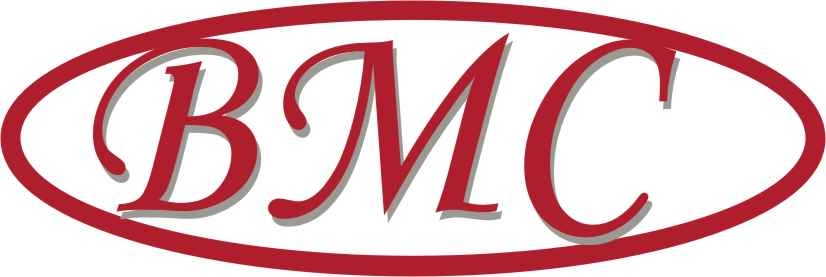I’d like to share some new speaking topics I’m offering to writers groups and others. Recently, I’ve presented programs on:
- Five writing myths and how to overcome them
- ‘Old-fashioned’ analog writing promotions that still work
- How to adapt effective non-fiction promotion techniques for novels
- Four ways to profit from your books without ever selling a copy
- The care and feeding of a literary agent (from my 15 years as owner of a literary agency)
Myths: Writers have real or self-imposed barriers to actually writing
* Writer’s Block
- When Your Imaginary Friends Won’t Talk To You
- When Your Muse is at the corner bar, trying to get laid
- When your rent is due and you’ve got a buck-twenty-seven to your name …
- Or maybe …
- It’s a bookstore in Las Vegas
- It’s an excuse
- It’s a state of mind
- It’s curable
How to Cure Writer’s Block Number One: Retype-to-Rewrite-to-Writing, By Lawrence Block (Credit where Credit is Due)
- Grab the last page of what you wrote yesterday (or the last day you did write)
- Start retyping it
- By a quarter-page, you’ll be editing what you type
- By the bottom of the page, you’ll be writing new stuff
How to Cure Writer’s Block Number Two: The Cliff-Hanger: Credit Unknown
- Stop in mid-sentence, at a cliff-hanger
- If you’re afraid you’ll forget what’s next, make notes – but don’t type them into the story
- Pick up where you left off
How to Cure Writer’s Block Number Three: Write Everyday: My Solution
- Write every day
- Repeat as needed
- If you don’t feel like writing, see First Point (Write every day)
How to Cure Writer’s Block Number Four: The Lysistrata Gambit: Credit: Aristophanes
- Get your life partner, significant or insignificant other, or casual fling to with-hold “favors” until you start writing
- Hey, if it stopped the Peloponnesian War – it can cure Writer’s Block
Proven ways to Not Cure Writer’s Block:
- Try drinking it away (or, given the new laws, smoking it away)
- Talk to everybody about Writer’s Block
- Talk to everybody about your book (you’ll sap your creative energy)
- Call your muse a cheap tramp and get her to sulk for the whole weekend
- Refuse to try any of the four proven techniques
Next Critical Writing Myth: Pantser or Plotter?
- Do you exhaust it to death? Do you run panting through your manuscript with no plans?
- Do you plot it to death? Do you create such a detailed outline that you squeeze all the juice out of your idea?
- As the breath mint ad said (sort of): “Stop – Your Both Wrong!”
- Pantsers should at least have a rough plan
- Plotters should leave room for creativity
- Here’s one step-by-step method of planning without sucking the life out of your idea (credit to Hollywood)
- Log-line – Create a one-sentence description of the entire book – the way TV Guide (which created loglines) described a 2-hour movie in one sentence
- Elevator Pitch – Create a 30-second description of the book that you can memorize and use to dazzle your friends
- Treatment – Borrowing a page from Hollywood, describe the book as a story in three acts.
- The first act is the Set-Up – the first 25% of the story
- The second act is Complications – 50% of the story (it can be divided into two equal sections)
- The third act begins with the Ultimate Crisis and ends with the Conclusion – it is the final 25% of the story
- Beat Sheet – index-card-sized description of every key scene in the book – ideally, use post-it notes and a white board, so you can move them around
- Remember, this is a draft – it’s not hand-cuffs (change it as needed)
The Final Myth (for today): You Can Self-Edit Your Book
- No, you can’t:
- Your brain sees what’s supposed to be there
- Your brain sees what’s supposed to be there
- Your brain sees what’s supposed to be there
- If you’re too cheap to hire an editor, try these work-arounds:
- Listen to someone read it out loud to you (try recording it) and make notes
- Read it out loud yourself (try recording it) and make notes
- Use software that will read it for you (unsatisfactory, but better than nothing) and make notes
- Print it out and edit it with a sharp pencil (or a red pen
- Do NOT try to edit it on the screen:
- Your brain sees what’s supposed to be there
- Instead of editing it, you’ll wind up rewriting it (again) and then you’ll still need to edit THAT version
Ways to Succeed in Writing Without Selling Any Books
- Anecdote – How I did it
- How you Can Do It:
- Become a News Media Subject Matter Expert
- Identify Your Topics
- Google Key-Word Searches
- Blogs – How You’d Explain Breaking News
- Media Pitch
- Success
- Become a News Media Subject Matter Expert
- Become a Well-Paid Speaker
- Be Paid to Speak
- Do a few sample videos – 90-second to 3-minutes
- Contact conventions coming to town
- Death, Taxes and Last-Minute Cancellations
- All the way to the bank
- Be Paid to Speak
- Make Money Other Ways
- Have them buy your book for all audience members (put their name on the cover)
- Have them set up an autograph table
- Have them provide a “volunteer” to take $
- Use Your Book Like I Did – As a Great Calling Card
- Become a Legal Case Expert Witness
Marketing & Promoting Your Book Without A Platform – More Ideas From My Master Marketing Plan & Forthcoming Book
- Create Tools
- Media Lists
- Virtual Platform
- Use Someone Else’s Platform (Richard McCartney)
- Real-World Groups (Laurence Block’s Hit Man)
- News on Demand – More on Surveys
- News Media Publicity
- Press Releases – Threat or Curse?
- Press Tips & Media Advisories
- Sell the Sizzle, Not the Steak (Diana Forbes)
- Hand-outs
- Blogs
- Video Blogs
- Newsletters
- PDF Goodies
- Platform-Building Freebies (yes, go ahead and build it, but don’t count on it)
- Website – all the features described this morning
- Line-Extension – (Faith-based examples):
- Small group study guides
- Sermon contests
- Video contests (based on the Great Barrier Reef example)
- Tchotchkes: Coffee mugs, baseball hats & branded goodies
- Café Press or alternatives
- Better quality / Self-Fulfillment
- Launch with Press Events (Washington Example revisited)
- Using non-fiction techniques to sell novels
- You’re an expert in your novel’s topic – prove it
- Examples:
- Clive Cussler
- Tom Clancy
- Brad Thor
- Vince Flynn
- John Gresham
- Lawrence Block
- Launch Party – Alexis Glazer’s Story
- Volume Sales via Non-Profits
- Clancy sold Red October by the thousands via US Naval Institute
- Block sells via stamp collectors groups & media
- Churches (as noted above)
- Your Alumni Association!!!
- Book Topic Summit
Literary Agent: Here are some key points I make when talking about literary agents:
- More books than ever before are being traditionally-published – 338,990 in 2015
- Literary Agents are increasingly a core necessity to becoming traditionally published
- More publishers than ever require literary representation
- If you want traditional royalty-based publishing, you need an agent
- Your agent needs you, too – but she needs you IF and ONLY IF:
- You can produce salable books
- You plan to write more books, on a regular schedule
- You’re ready to market your books
- You’re professional in your expectations (of the Agent)
- How to find a Literary Agent
- Writer’s Market, Guide to Literary Agents & Writer’s Digest
- Publisher’s Weekly & Literary Market Place
- Other writing magazines
- Hollywood Reporter (for Hollywood Agents)
- Best of all – Referrals from clients
- How to court Literary Agent – what they look for
- Professionalism
- Low Maintenance (i.e., you’re not demanding)
- Writing quality and writing history
- Self-Marketing skill – primarily, a strong platform
- Long-term writing plans
- How to land Literary Agent
- Introduction from an existing client
- A professional pitch that is EXACTLY what they want
- Non-annoying persistence
- Great writing
- How to work with a Literary Agent
- Do exactly what they say
- Do it exactly when they expect it
- Ask reasonable questions
- Control your expectations
- What to expect from a Literary Agent
- If you want a friend, buy a dog – your agent is not your friend
- Timely reports on progress – but at reasonable intervals
- Professional pursuit of editors
- Your financial best interest (because it’s also their financial best interest)
- Skillful review of contracts offered by publishers
- Savvy advice that’s worth listening to
- How NOT to Expect from a Literary Agent
- Don’t expect to be charged service fees beyond pre-agreement reading fees
- Stick to business hours – don’t expect 24/7 availability
- He’s not your banker – don’t ask for or expect loans
- He’s not your psychiatrist – don’t cry on his shoulder
- He may be friendly, but he’s not your friend – like you, he’s in business to make money
- Don’t expect her to edit your work – that’s your job
- Don’t expect her to format your book for submission – that’s your job, too
- Don’t expect him to create your book’s pitch kit – that’s your job, too – so read Michel Larsen’s classic book: How to Write a Book Proposal, Fifth Edition – and if you just can’t do it, hire somebody who can – but not your agent
Conclusion
- The right agent is your successful gatekeeper to royalty publishing contracts
- The right agent is your best avenue to Hollywood
- The right agent does not charge you service fees beyond a pre-contract reading fee
These are presentations I’ve given recently, and I look forward to giving your group any one of the same presentations.


Recent Comments